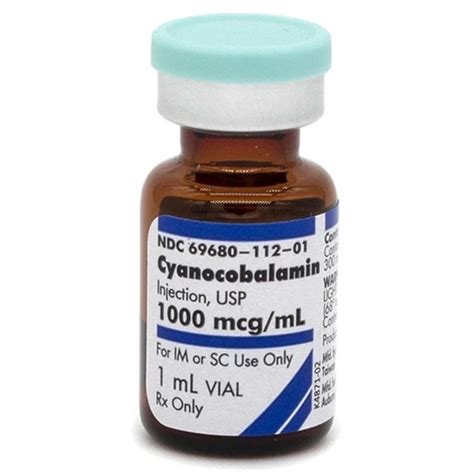B12 Cyanocobalamin

The Essential Role of Vitamin B12 (Cyanocobalamin) in Human Health
Vitamin B12, also known as cyanocobalamin, is a water-soluble vitamin that plays a pivotal role in numerous physiological processes. Often referred to as the “energy vitamin,” B12 is essential for nerve function, DNA synthesis, and the production of red blood cells. Despite its importance, B12 deficiency remains a global health concern, particularly among vegetarians, vegans, and older adults. This article delves into the science, sources, benefits, and risks associated with vitamin B12, offering a comprehensive guide to understanding its critical role in human health.
The Science Behind Vitamin B12
Vitamin B12 is a complex molecule that exists in several forms, with cyanocobalamin being the most common synthetic version used in supplements. Other forms include methylcobalamin, adenosylcobalamin, and hydroxocobalamin. Each form has specific functions, but all are critical for:
- DNA Synthesis: B12 is required for the replication and repair of DNA, making it vital for cell division and growth.
- Neurological Health: It helps maintain the myelin sheath, the protective covering around nerves, preventing neurological damage.
- Red Blood Cell Production: B12 works alongside folate to produce hemoglobin, the protein in red blood cells that carries oxygen.
Sources of Vitamin B12
B12 is naturally found in animal products, making it challenging for vegetarians and vegans to obtain adequate amounts. Key dietary sources include:
| Food Source | B12 Content (per 100g) |
|---|---|
| Beef liver | 70.7 mcg |
| Salmon | 4.9 mcg |
| Fortified breakfast cereal | 6.0 mcg (varies by brand) |
| Dairy products (milk) | 0.9 mcg |

For those who cannot meet their B12 needs through diet alone, supplements and fortified foods are essential.
The Impact of B12 Deficiency
B12 deficiency is a silent epidemic, often going undiagnosed until symptoms become severe. Risk factors include:
- Dietary Restrictions: Vegans and vegetarians are at higher risk due to the absence of B12 in plant-based foods.
- Age: Older adults may produce less stomach acid, impairing B12 absorption.
- Medical Conditions: Pernicious anemia, Crohn’s disease, and celiac disease can hinder B12 absorption.
Symptoms of deficiency include:
- Fatigue and weakness
- Numbness or tingling in the hands and feet
- Memory loss and confusion
- Pale skin and shortness of breath
B12 and Chronic Diseases
Emerging research highlights the role of B12 in preventing chronic diseases. For instance:
- Cardiovascular Health: B12 helps regulate homocysteine levels, high levels of which are linked to heart disease.
- Cognitive Function: Adequate B12 levels may reduce the risk of Alzheimer’s disease and dementia.
- Mood Disorders: B12 is involved in the synthesis of neurotransmitters like serotonin, impacting mental health.
"A study published in the *Journal of the American Medical Association* found that B12 supplementation significantly reduced the risk of age-related macular degeneration by 34%."
The Future of B12 Research
As the global population ages and dietary habits shift, the importance of B12 will only grow. Researchers are exploring:
- Biofortification: Enhancing plant-based foods with B12 to address deficiencies in vegetarians and vegans.
- Personalized Nutrition: Tailoring B12 intake based on genetic predispositions and lifestyle factors.
- Alternative Delivery Methods: Developing B12 patches and nasal sprays for improved absorption.
Can you get enough B12 from a plant-based diet?
+Plant-based diets naturally lack B12, so vegetarians and vegans must rely on fortified foods or supplements to meet their needs.
How much B12 should you take daily?
+The recommended daily intake for adults is 2.4 mcg, but this may vary based on age, pregnancy status, and health conditions.
Can too much B12 be harmful?
+B12 is generally considered safe, even at high doses, as excess amounts are excreted in urine. However, consult a healthcare provider before megadosing.
What are the signs of B12 overdose?
+Overdose is rare, but symptoms may include anxiety, acne, and digestive issues. Always follow recommended dosages.
Conclusion
Vitamin B12 is a cornerstone of human health, influencing everything from energy levels to cognitive function. While deficiency remains a concern, awareness and proactive measures can ensure optimal B12 status. Whether through diet, supplements, or medical intervention, prioritizing B12 intake is essential for a healthy, vibrant life.
Final Thought: In a world where dietary choices are increasingly diverse, understanding and addressing B12 needs is more important than ever.


